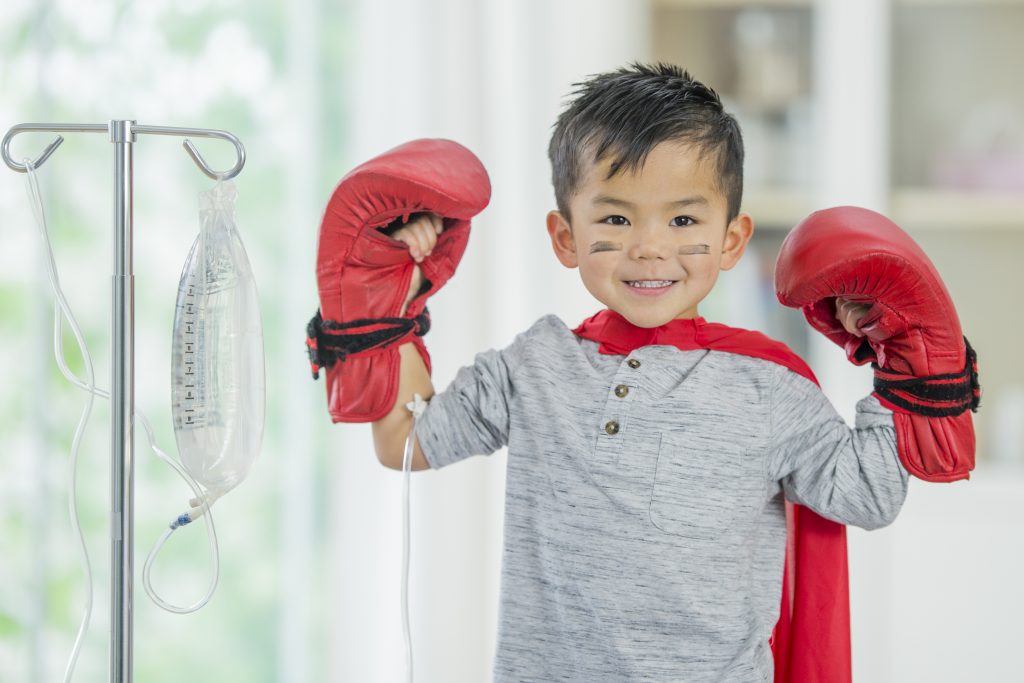
Has your child been diagnosed with Cancer and the doctor wants to start chemotherapy? Chemotherapy is widely used to treat Cancer. Chemotherapy is a systemic treatment that goes directly into the bloodstream and kills all rapidly dividing skills, including rapidly diving Cancer cells. Chemotherapy is used to accomplish three goals including cure, control, and palliation. There are many different side effects to chemotherapy and your child may feel sick at times.
Chemotherapy not only kills Cancer cells, but it also can damage normal, healthy cells. This can lead to side effects. Depending on the type of chemotherapy, side effects can include hair loss, nausea, vomiting, and mouth sores. The good news is that most side effects are temporary. As the body recovers the side effects will start to go away and your child should start to feel better. There are certain side effects to look out for while your child is receiving chemotherapy.
Fatigue
When your child receives chemotherapy, it is inevitable that they will feel tired and fatigued. This is the most common side effect of chemo. Encourage your child to scale back on activities and to rest as much as possible. When treatment is over, your child’s energy should return. If your child is so fatigued that they can’t complete regular activities like taking a bath or brushing their teeth, then make sure to contact the doctor.
Pain
Some chemotherapies can cause pain. Pain can come from headache, temporary nerve damage, stomach pain or muscle pain. If your child is experiencing any kind of pain during chemotherapy, make sure to communicate with your healthcare provider. Your child’s doctor can prescribe medicine, but don’t give any pain medication or herbal medication without the doctor’s consent. Not all medications can be given congruently with some chemotherapies.
Weight Changes
Some children gain or lose weight during chemotherapy. Chemotherapy is designed to kill Cancer cells however, they will also kill healthy rapidly growing cells, like the cells on the tongue. This may cause foods and drink to taste bitter or have no taste at all. Your child’s appetite may also decrease due to chemotherapy killing rapidly growing cells in the stomach lining. This may cause your child to experience nausea and vomiting and not eat as much, which will cause a decrease in weight. It’s also common for your child to take steroids in conjunction with chemotherapy treatment, and this may increase your child’s appetite and increase weight gain in unusual places. Make sure to communicate with your child’s doctor if you are concerned about their weight.
Overall, always be in constant communication with your child’s doctor about any questions or concerns you have. Also, make sure to keep a notebook with any and all symptoms your child may be experiencing. It is great to have good communication with the doctor and nurses to help explain the process and give you insight into what your child may be experiencing.
Priscilla Q. Williams, RN: Author, Speaker, Certified Life Coach, Global Nurse Educator www.priscillaqwilliams.com
